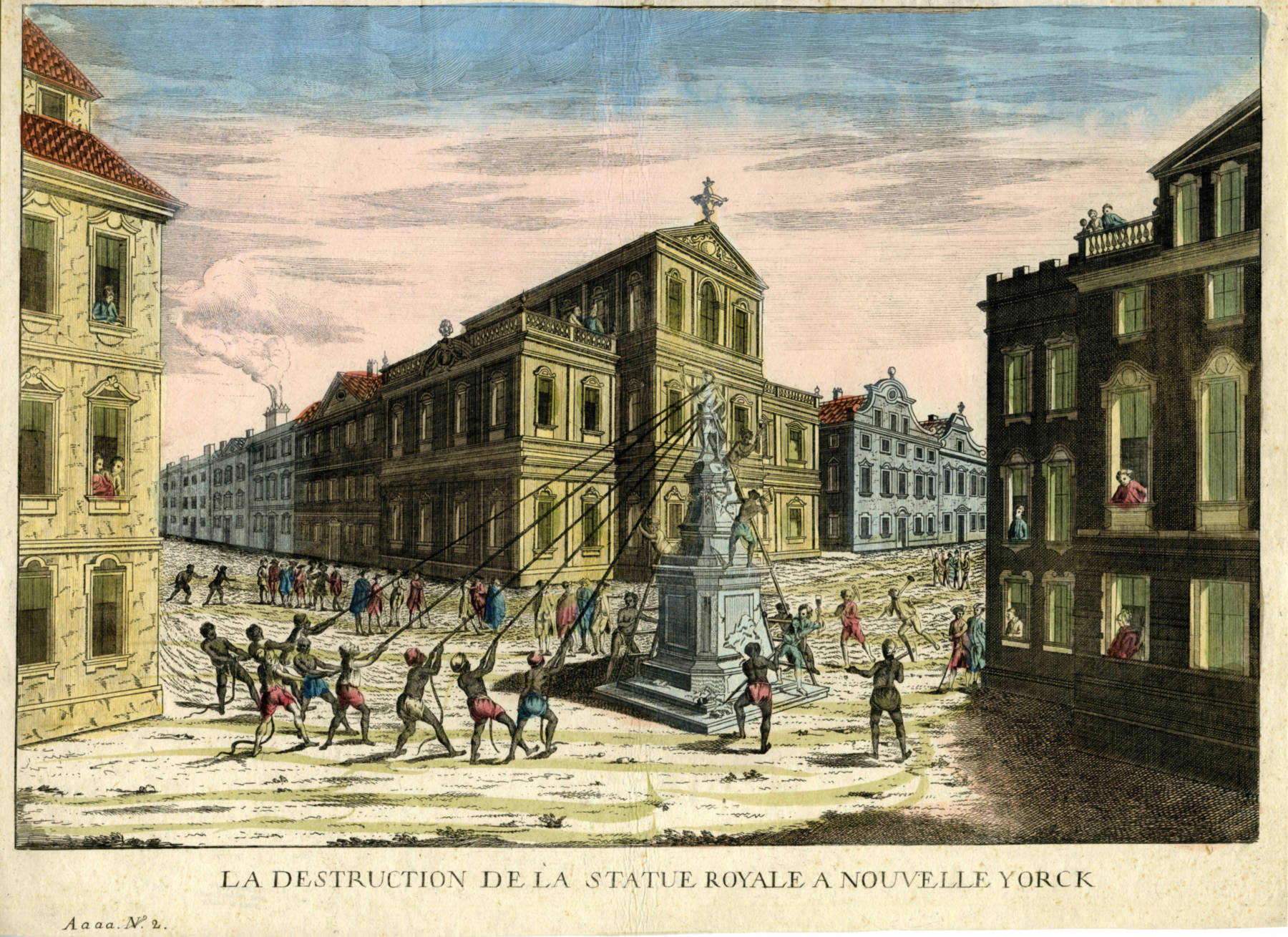1.
In the last several months, Conservatism lost two of its family members: Norman Stone, a historian, and Sir Roger Scruton, a philosopher. How important they were is testified by the fact that they and Jonathan C. D. Clark, the author of a very important work on English history, entitled, English Society, 1688-1832, became objects of the liberal historian Timothy Garton-Ash’s attack in 1990. Attacks are never pleasant to those who are their object, but sometimes they tell the reader whose views deserve attention.
What do these three men have in common? They were staunch defenders of hierarchy, privilege and the Past. The Past is sacred; it is our guide to the future, and, therefore, to use one of Sir Roger’s favorite words, it must be approached with “piety.” The Liberal sees nothing sacred in the Past. Like hierarchy and privilege, it is an instrument of the oppressive “power-structure,” which today’s Liberal finds it imperative to destroy.
The chaos and lawlessness on the streets in America has brought to light what the philosophy of Liberalism has become, but it also highlighted the importance of the role that the State plays in upholding social order.
The State and History are what Liberals waged an open war against. The destruction of monuments, Nancy Pelosi’s (the Speaker of the American House of Representatives) wholehearted support for the removal of statues and paintings from the Congressional buildings, the destruction of Columbus’ monuments all over the country, and those of the American presidents (Ulysses Grant and Theodore Roosevelt) are open admissions that American history is in the process of being abolished even by American politicians.
The Washington D.C. mayor’s refusal to lodge members of the National Guard, while the President, for reasons of security, was put in a bunker, is also a telling fact: the enemy is not the thugs, looters and vandals who took over the protests, but the State.
Paradoxically, this sentiment is shared by many high State officials whose salaries are paid for by the State. According to the mayor of Durham, in North Carolina, the function of police, which White folks need to understand, was to police Black people, and to protect White people and their property. The absurdity of such an utterance becomes obvious when we reflect on the fact that police are present in all African countries with no White population. The function of police in every civilized and advanced society is not to protect one race from another, but to protect decent citizens from harm by anyone.
To be sure, America has a race problem which cuts both ways, but the racial conflict is augmented by media and demagogues, and the mayor’s statement propagates a socially dangerous view, according to which, the American police is an oppressive arm of the White race. That may have been true to some extent a very long time ago, but it is hardly the case nowadays. Even the most hideous racially motivated killings are the work of individuals rather than the White “power-structure” or effects of “systemic racism;” and very few Whites in the U.S. can be called racist.
I doubt that Durham’s mayor propagates her views out of malice or even ignorance. Such an outlook on American history is the effect of about three decades of multicultural indoctrination by an intellectually semi-literate academic establishment.
Many of the American politicians and activists see the political realm as theatre, on whose stage we are watching an eternal racial conflict where the Whites play the role of the oppressors and the Blacks the role of the oppressed. If it is politically expedient, the actors are the oppressed American Indians, or the privileged class and those without privileges, the obscurantists who look to the Past and the Progressives who look to the Future.
The script changes, depending on who wants to enter the stage. Last year, during the weeks of Congressional testimony by Justice Kavanaugh, the actors embodied the two sexes: men and progressive women. Several years earlier, when the Supreme Court, after several-thousand years of human history, was deciding what marriage is, the participants were the heterosexual oppressors and the oppressed homosexuals.
Next came the “transgendered” party and those who feel comfortable in their original skin. There are already signs that the future conflict will erupt between the monogamist oppressors and the oppressed groups of polygamists who will demand further changes in the structure of family. This scheme is like a mathematical equation, with one unknown, which can always be substituted by whatever minority variable one wants.
Nothing in this theatrical scenario is very original. The script was written in the second half of the 19th-century by Karl Marx and Friedrich Engels, the founders of Socialism, in The Communist Manifesto, and by John Stuart Mill, the founding father of Liberalism, on the very first page of his On Liberty and the last two pages of his Utilitarianism. Both Marx and Engels, on the one hand, and Mill, on the other, view social conflicts always as bi-polar. History’s purpose is to abolish hierarchy and replace privileges by rights. At the end of History, once equality reigns supreme, there will be no need for the use of force! The State—its coercive institutions—will wither away.
By calling on the police to be “defunded,” the current protesters want to accelerate this process. When the mayor of Minneapolis said that he would not do it, the angry crowd shouted: “Jacob, go home.” Jacob, unless he does what the mob says, is likely to be voted out, and we can be almost certain that the new mayor will be elected on the promise of defunding police, or seriously limiting the scope of its power. The movement is aiming at further “withering” of the already weak liberal State.
To anyone with a modicum of critical-mindedness, such ideas are at best utopian and at worst dangerous. The danger seems to suggest, however, that the Western world may have reached the point where its two socio-political options—Conservatism and Liberalism which originated at the beginning of 19th-century — are no longer two forces mutually controlling and enriching each other in their occasional clashes over social policies.
Liberalism, which for the last sixty years or so has been slowly corroding social hierarchies, degenerated into a destructive social force. It is no longer the philosophical doctrine which drew our attention to unnecessary cruelty, brutality, arbitrariness in administrating the system of justice, and the abuse of power.
In its nascent stage, Liberalism promoted serious policies—unemployment benefits, education for the poor, taxation, greater participation of women and lower classes in political decision-making—that would help the poor and weak. All these items were addressed and tackled with high degree of theoretical subtlety by J. S. Mill in his Considerations On Representative Government.
Today’s Liberalism is not a doctrine that encourages the underdogs to make an effort to ennoble themselves, but encourages them to feel resentful. This resentment, as Nietzsche saw it, encourages the destruction of the social fabric and institutions that protect all individuals from one another. As New York authorities announced, they will not prosecute the protesters for damages, which is another way of saying, that one can participate in the destruction and still pay no legal consequences.
Is what is happening on our streets a matter of badly designed social policies or discrimination? One can seriously doubt it. What I would like to suggest is that what is taking place is the consequence of the Liberal doctrine.
2.
Liberals have always been hostile to the use of force or coercion in human relationships. This is clear from reading Mill. The meaning of the term “force” or “coercion” in the Liberal dictionary is extremely wide. It can signify burning human beings alive, torture, lynching, brutal beatings, but it can also mean light spanking, screaming at someone for rudeness, using so-called “offensive” language, or any form of what was once considered discipline.
Lack of discipline is responsible for the state of American education and lack of respect among children and young people, without which polite society is impossible. Everything that is not negotiated is considered coercive and evil. Therefore, to achieve their social and political goals, the Liberals prefer to use legislation in order to regulate human relationships rather than discipline.
They see no contradiction between mounting legislation which regulates every aspect of human relationships and the diminishing scope of individual freedom. This paradox was noticed already by Tocqueville, who understood that the reason why there is so little freedom in America is that the democratic man does not understand that the laws he enacts can be the source of his own enslavement.
The Liberal State that sees power as evil does not know how to act in situations of national emergency, for example, nation-wide riots, which threaten social order. Can one defend the destruction of property, physical violence, or the killing of police? A commonsensical person should agree that the State can, should, and must intervene to deter the destruction of property, and the harm or death of many persons. Accordingly, it would appear that in such situations the Liberal is pushed into a corner and forced to renounce his naïve idea that, either there are no circumstances under which we could use force, or that all problems can be negotiated. But the Liberal mind can defy logic.
During recent protests, the liberal news outlets spared no effort to augment the protesters’ grievances, which go back to 1619, when the first slaves were brought to the New World. Grievances either obfuscate or justify the destruction, as they did in 1789 in France and 1917 in Russia. And as grievances grow, the destruction of cities and the deaths of several policemen become irrelevant. Today’s victims are the currency with which the Present pays off its historical debt. This is how the Communists thought and what they did.
In the words of Gletkin in Arthur Koestler’s Darkness at Noon, “History is a priori immoral; it is not a brothel of emotions,” and, therefore, no point in shedding tears over the death of a few innocent men who died defending the Old order. Lack of coverage of those deaths in the liberal media proves that the old communists are today’s liberals.
The case in point is the behavior of Nancy Pelosi, after Congressional presentation by the sister of Patrick Underwood, the Black policeman who was killed by a looter. The Speaker of the House, who stood eight feet from her, did not even bother to express any condolences for his death. Why? Most likely because in defending order, the murdered policeman was on the wrong side of History, whereas his killer was part of the social movement whose origin can be traced back to 1619.
3.
We should note, however, that American conservatives who believe that the imposition of curfew or martial law measures for a very brief period of time could have saved us from the destructive power of protests, do not have a firm conviction that one can find justification for the use of power.
This seems to have always been the case in American Conservatism, which from the beginning of the Republic was dominated by the Liberal idea of abstract rights. As Ronald Raegan said: “The state is not a solution; the state is a problem.”
To be sure, at that time in American history, conservative Raegan thought of the State as a huge bureaucratic machine, which needs to be reduced to make room for private initiative in the economic realm – but this leaves the problem of how much power the American conservatives would be willing to grant the State to prevent society from falling into chaos.The only legitimate realm where Americans feel the use of force is rather unproblematic is foreign lands—a matter of little interest to the uninformed majority of the American public.
The problem can be ultimately reduced to how Liberalism and Conservatism perceive the role of the State. While the former sees it as a means to shape and impose abstract social and political norms, always by legislative means, the latter sees the State as a product of a historical process, and considers its power as legitimate only when it is used in defense of the historical nature of the country: its institutions, religion, customs and traditions. The Liberals do not consider any of the above as particularly important. At best, they think of them as ingredients of what they term “multiculturalism.”
In a Conservative vision, on the other hand, there is no room for the State to use its coercive power to intervene in the family structure, educational programs (unless they are harmful to the development of children), forms of religious worship, marital relationships, let alone defining who is a man or a woman. These structures and institutions established themselves through a long historical process (and continue to evolve), and this is a sacred Conservative realm. They can never be changed according to an a priori blueprint or a legislative fiat of a democratically elected legislative body.
The decision of the Supreme Court concerning marriage is the most glaring demonstration of how divorced the Liberal mind is from History. Given the fact that there are no historical precedents, not in the entire human history of all peoples and races, to take marriage to be anything other than a union of man and woman, the decision of five American Justices of one of the youngest countries in the world tipped the historical scale.
The same disregard for History can be observed in the treatment of traditional educational curricula, Christian religion, or History of the United States. The books by minorities, despite the fact that they have had a marginal role in shaping the mind of the nation, are considered more important than the gigantic classics which shaped it; Protestant Christianity, Judaism, and Islam, despite the paramount importance of the role of Protestantism in creating American culture, are put on a par; and the three monotheistic religions are put on par with Eastern religions and different “New Age” doctrines.
What is ultimately responsible for this state of affairs is the idea of equality, which does not tolerate discrimination, despite the fact that only some religions, books, cultures, peoples, and ideas have forged nations and their institutions.
4.
The Liberals, who traditionally boasted that they are the defenders of a “minimal” State, are today the greatest defenders of an all-powerful State, one which constitutes a threat to traditional structures, social mores, and individual freedoms. Why is that?
The liberal polis is an abstraction, the denial of previous forms of social organizations, and its ultimate goal is the unconditional equality of all people and all cultures. It is inhabited neither by the Germans in Germany, the Poles in Poland, the Italians in Italy, nor the Americans in the United States.
The citizens of this Liberalopolis are abstract human beings, stripped of their historical identity. They are neither American nor Kenyan nor Japanese; nor are they White or Black or Yellow. And last but not least, they are neither men or women, and their sexual “preferences” are neither Natural nor of Divine design. They, like culinary taste, are a matter of individual taste and subject to change. The criterion of choice is not rational; it is a subjective feeling, or whim.
The conservative State in their eyes is a threatening “power-structure,” which is the bedrock of social hierarchy and privileges rather than rights. Even the old traditional educational programs are the enemy because they inculcate reverence for the Past, and in doing so, they unconsciously perpetuate old forms of oppression. For this reason, they deserve to be quietly destroyed. A superficial glance at the state of American universities suffices to understand how successful Liberalism is in destroying education.
The Conservative mind, the liberal argument runs, is implicitly biased and discriminatory against other groups or cultures. An Englishman has no more reason to feel proud for being English than a Gypsy or an Eskimo. English “superiority” on account of England’s achievements is an illusion because both an Englishman, and a Gypsy or an Eskimo, are simply human beings.
The superior attitude of, say, a proud Englishman named, “Nigel” can even be threatening to a Gypsy or an Eskimo; and calling a Gypsy “Gypsy” rather than “Roma” is a sign of English-supremacy. The threat, of course, is not of a physical nature. It is psychological. To ensure that a Gypsy and Eskimo have an equally high self-esteem as “Nigel”, colleges make sure that English history is not taught there, or, at best, it is one of many history courses, including Gypsy and Eskimo histories.
In the eyes of the Liberal, the defense of the Past, including the defense of programs which teach English history, is a sign of English or White (cultural) supremacy, and this must be fought against—lest it occur to “Nigel” to recreate the British Empire.
This way of thinking, crazy as it sounds, forms the basis of democratic-liberal politics in America and Western democracies. For example, in the words of former Democratic presidential candidate, Senator Kirsten Gillibrand of New York, “There are no illegal immigrants, because there are no illegal human beings.” Gillibrand, you might think, is an extremist! Not at all. Consider what American children learn in schools daily: fixed “gender” is a social construct. And since it is a construct, it can be deconstructed and changed.
For instance, the State’s refusal to accept my claim that I am what I claim to be (a woman in the case of someone who was born with male genitals and who shaves everyday) is oppressive, and the judge, the college professor, or the co-worker who refuses to acknowledge how I feel is a manifestation of “structural oppression.” Ergo, we must fight the State, educational institutions, and the way others see and think of us.
A most recent item in the Liberal Catechism, which American children are taught, is that there is no genetic basis for race. Accordingly, there is no White, Yellow, or Black race—there is only the human race. From here, there is only one step to Senator Gillibrand’s proposal for open borders: there should be no borders, no states, since our true citizenship is defined in terms of a shared humanity which overrides the old national categories, which teach us to be prejudiced against others.
As part of her campaign to raise racial consciousness, Senator Gillibrand even made a few trips to meet with White small-town folks to explain to them that they are beneficiaries of “White privilege.” The trip did not go well, and because individual calls to end “oppression” fall on deaf ears, the solution is to institute sensitivity trainings, and give the State more power so no student or employee in America can escape it. This is a pure form of ideological brainwashing on a national scale – which had never taken place under communism in Soviet Russia and its satellite countries.
Many such ideologically driven rules are already in place and govern our speech (the mandatory use of preferred pronouns, the censure of “sexist” language) and conduct (reorientation of sexual mores; correction of racist, sexist, misogynist, homophobic, and Islamophobic attitudes). So far, no university or institution has dared to defy it.
Rather, they have been at the forefront of its cause, ensuring that the new generation of American children learns the new catechism of social insanity.
Many of us believe that we fight barbarism. This is not quite true. Fascism and Communism were barbaric in the sense that they twisted historical heritage so that it would conform to the official ideology of a country. What we are facing is insanity, which is in the process of annihilating Western cultural heritage and our own understanding of ourselves as men and women.
What else but insanity can one call the state of mind of someone who, standing in front of a mirror, has doubts about his sex? What does one call the legal system where the judge rules, as happened in the UK last year, that Biblical teaching from the Book of Genesis about two sexes is “inconsistent with human dignity”? What justice system is it that redefines what marriage is? (Couldn’t one stop by granting homosexual couples exactly the same rights without abrogating the entirety of human tradition?)
Does one really need to be a religious bigot to defend his refusal to bow to insanity because he refuses to call a man a woman? Common sense should be enough. But ever since the new gender studies dominated education, common sense, as Orwell’s Winston discovered, became the greatest heresy. In his ruling, the British judge acted like Orwell’s O’Brian who made Winston believe that 2 + 2 = 5. There is nothing “dignifying” in making people with psychological problems believe that they are OK, and at the same time force the insanity of a few onto others. It is totalitarian oppression in its purest form.
Instances of insanity that defy common sense are endless. It has become common practice in America to reward failure. The members of school sports teams, which happen to lose the game, receive trophies. “Trophies for what?” you may wonder. For losing! This way a child, as I was told by my daughter’s coach, whose team never won, will not lose self-esteem. Clearly, no one thought what long-term psychological consequences such methods can have. Imagine a child whose room is full of trophies for losing! Self-esteem grows out of success in the face of adversity, and no new “psychology for losers” will ever change that.
These trophies for losers reveal only what Liberalism aims at: abolishing hierarchy. Hierarchy exists only in societies which retain a sense of excellence. For example, the idea of a “grade” or a “mark” (received in our schools) used to show your placement vis-à-vis an objective standard of excellence, and would thus signify where you are relative to others. But as excellence disappeared from education, so did a serious grading system. Almost everybody today is an A-student!
Why is that? As equality made its inroads everywhere, so hierarchy and its sister, privilege (right based on merit) disappeared. Right is the new form of privilege to which everyone is entitled; but since in every game there are winners and losers, to uphold equality, it is only natural to reward losers with a trophy.
This egalitarian mentality became all-pervasive, and it seized the minds of almost everyone. There is virtually no way to argue today about, say, the superiority of Beethoven’s “Fűr Elise” over Jay-Z’s rapping about “White bitches;” or the superiority of musical pieces performed by Chicago Philharmonic Orchestra over the sounds produced by street rappers on Michigan Avenue. Vulgarity and the greatest achievements of human spirit have finally reconciled.
Our inability to discern between the High and the Low is the result of a blurred distinction between “Culture” (like in “High Culture”) and “culture” (in the old anthropological sense).
The same goes for dress code. I have seen many people giving each other “strange looks” when they saw young men wearing pants sagging down, exposing their buttocks to the public, but have never heard anyone explain to them that what they think is a fashion is, and would have been called decades ago, “public indecency,” lack of manners, bad taste, or vulgarity. Today, we call it culture! Expecting that someone keep his pants above the waist would be considered an expression of “oppression” and “supremacy,” an “imposition of ‘your’ values” onto others, or, simply, intolerance. Many among us still know what is proper, but we lack the courage to say it.
5.
The Liberal Left is becoming more and more anti-capitalist, anti-free market; and the defense of capitalism should be one of the goals of conservatives. However, the defense of capitalism is likely to be unsuccessful, if it means a defense of corporate business, which the Republican politicians in America are in the habit of partaking in.
Values of Conservatism are not the same as those of a political party, and the values of corporations are not the same as the values of a nation. As Lord Acton noted in his letter to Mary Gladstone, corporations have neither a body to kick nor a soul to redeem. They are soulless creatures, looking only after themselves.
The old slogan, “What is good for business is good for America” covered this truth for decades. It was accepted because, so long as most of the powerful world corporations were American, the American public profited from them. The true nature of business was realized about twenty years ago when American businesses moved to Asian countries. Once they discovered that what is good for business is cheap labor, they left their tricolor national dress behind on American soil, leaving American workers jobless.
The corporate world, however, can sometimes be an instrument endangering national interest. Everyone remembers the famous incident in a Starbucks two years ago when two Black men were arrested.
Instead of applying appropriate measures with respect to the employees’ posture in the location where the incident took place, Starbucks turned the isolated problem into a national problem of racism. It immediately instituted a nation-wide shut-down of all its stores for several hours to conduct “bias” trainings for all employees. It was a spectacle, the purpose of which was to demonstrate Starbucks’ commitment to fighting undesirable attitudes. How good was Starbucks’ decision for the nation?
As I write these words, destruction and anarchy are sweeping through a number of cities in the U.S., millions of Americans are burning cities and many young White people are feeling ashamed of being White. Some of them denounce their parents for being “racist.” Norms of civility are being crushed. All of this is done in the name of the same ideology which seeks to render the world free of biases.

Yet, those young people know little to nothing about racism. They are too ignorant about history and are too young to remember what racism was. They attend the same schools that Black children attend, they have Black classmates, Black friends, and some have Black girlfriends and boyfriends. They did not watch Guess Who’s Coming to Dinner, to fathom the obstacles of interracial marriage in the past. Yet the protesters act as if America was still a pre-Civil Rights country, and some think that as long as prisons exist, slavery still exists, too.
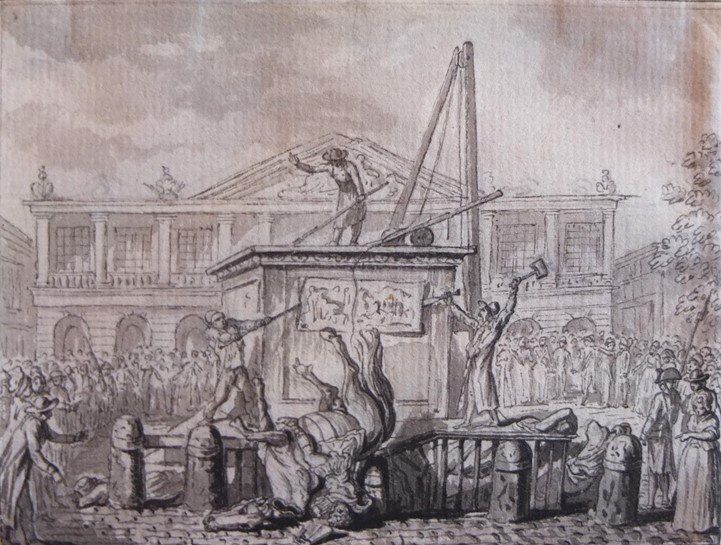
When we visit what we call “White trash” neighborhoods, we realize that the problems one finds there are the same that exist in Black: they are human problems, and most human problems come down to the disintegration of marriage, single-parenthood, familial troubles, lack of religious ties and moral code, and a weak sense of community. Those among the Blacks who talk to other Blacks about “acting White” do a profound disservice to Black Americans; just like the college teachers in poor community colleges who tell “White trash” students about “White privilege.” This is a language that can only anger people and further divide America.
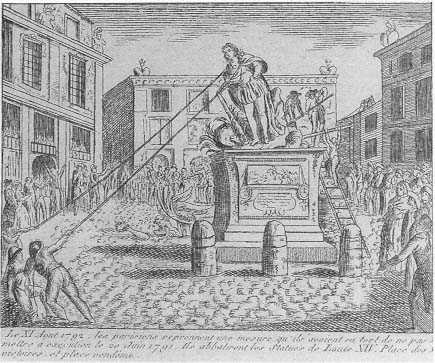
Why have only few journalists and politicians dared to make a connection between the high level of incarceration among young Black men and the disintegration of the Black family, or the lower academic performance and the lack of appreciation for learning in Black communities? The answer is not shrouded in mystery: only certain, historically discovered and established methodologies, ways of thinking, cultures, and forms of behavior proved successful. All of them have roots in Western intellectual tradition, which far-East Asians do not reject because Dead White European Males invented or discovered them. They have adopted the White intellectual tradition because they know that that is the way to success. So do some of the Muslim-Arab and African countries.
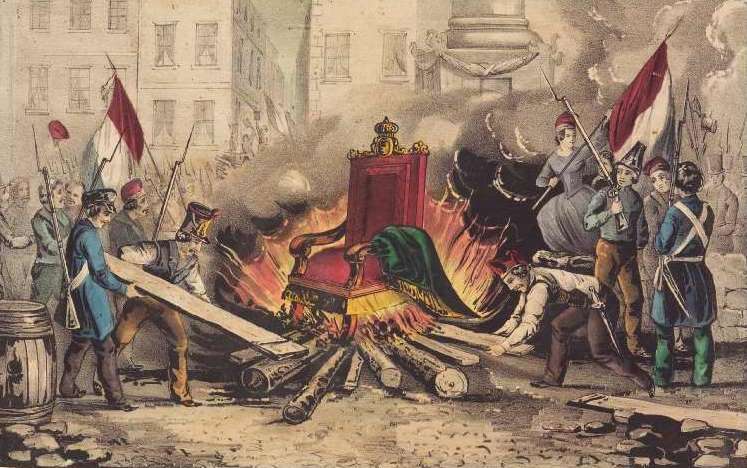
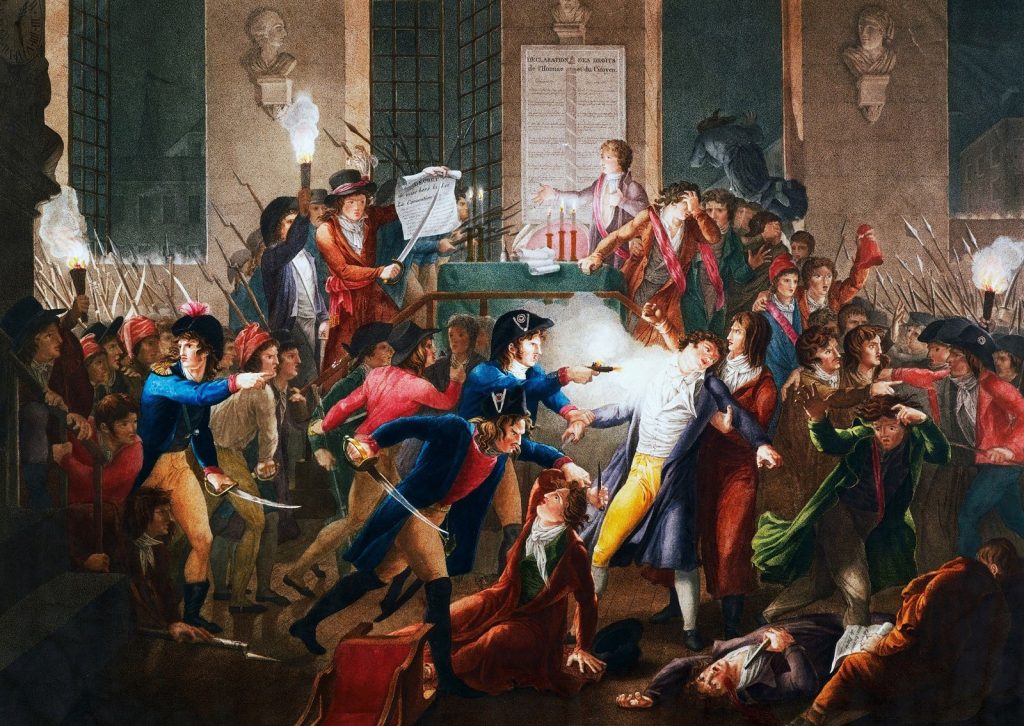
But the Western intellectual tradition is under attack in America and Europe by the partisans of multiculturalism who promote the idea of equality of all cultures. If we are serious about “no child left behind,” we should educate every Black, Brown and White child in the Western tradition. There is nothing that can change the fact that the Frenchman Descartes invented analytical geometry, the German Leibniz, calculus, and the English Newton formulated the laws of Modern physics. If you want your child to be successful, you should make sure that they know it, rather than accuse them of acting White.
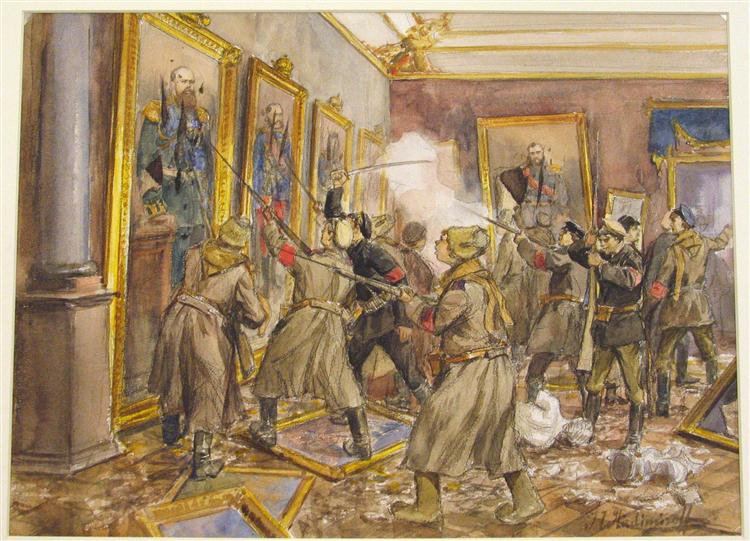
The hysterical nature of the protesters’ behavior, tearing down monuments of historical icons, is reminiscent of the “Two Minutes Hate” in 1984. Given their age, they should not act this way. If they do, it is because their behavior is the result of an artificially induced hatred of Present and Past America, of the West, and as long as there are any signs of it left, they will continue their destruction of the country and of Western civilization.
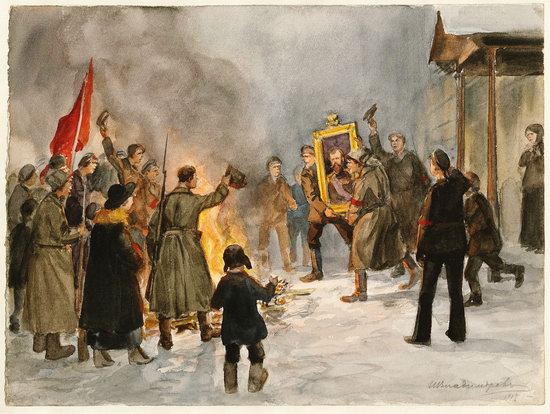
Today’s protests are not the end but, more likely, the beginning of a series of protests. Everything suggests that democracy, as Plato predicted it in Book VIII of his Republic, has entered the stage of disintegration of authority. Just like France in 1789, and Russia in 1917, the US shows the same symptoms of revolutionary fervor, including the attempt to erase the Past. After several years, in 1793, the experiment ended with the Reign of Terror that was followed by the seizure of power by Bonaparte. Revolutionary disorder ended with one man’s tyranny.
Only the blind in reason can claim that there is no connection between the mass indoctrination concerning race that young people are subject to in schools and colleges, and what is happening now in American cities. The same goes for gender indoctrination.
The crowds of hysterical women demonstrating against the appointment of Justice Kavanaugh on the steps of the Supreme Court looked like a religious chiliastic movement. Finally, the protesters’ disregard for recommended safety measures during COVID-19 showed that their desire for a perfect world overcame the natural fear of death. Such an attitude was not uncommon among the believers in eradicating evil from the world.
6.
George Floyd’s death does not fit the category of American police brutality or “targeting” Blacks. His murder was an act of bestiality and sadism of one sick individual who happened to wear a police uniform. There was not a single American who did not condemn it. If anything, Floyd’s death made all Americans feel repulsed at the sight of unspeakable cruelty. Yet almost within hours, this moment of national unity was hijacked by different factions which gave it a label: racism.
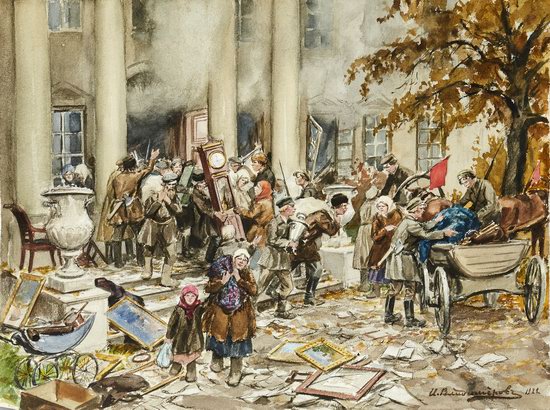
After several days of anti-racial protests, the frenzy assumed anti-Confederate tones to underline the continuity of American history: 1619, the Civil War, and today. Several monuments of Robert E. Lee have been torn down. What followed was the destruction of the monuments of Christopher Columbus.
One could wonder, however: what does Columbus have in common with General Robert E. Lee, who lived almost four hundred years after Columbus discovered America? As American students learn now, Columbus was the father of “genocide.” Confederacy means “White,” “White” means “racial supremacy,” and since Columbus was White, he and Robert E. Lee belong to the same family: White European oppressors.
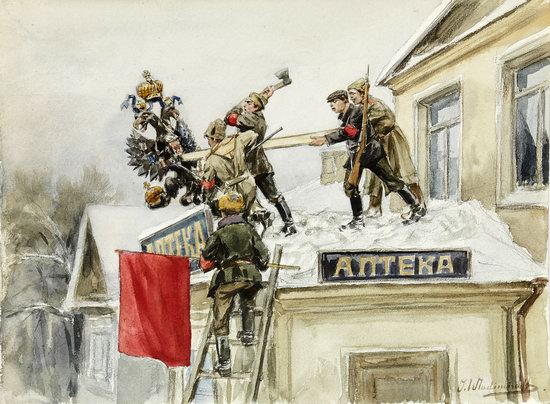
Accordingly, Columbus’ discovery of America in 1492 appears to have only been a preparation for 1619, when the first Black slaves were brought to America.
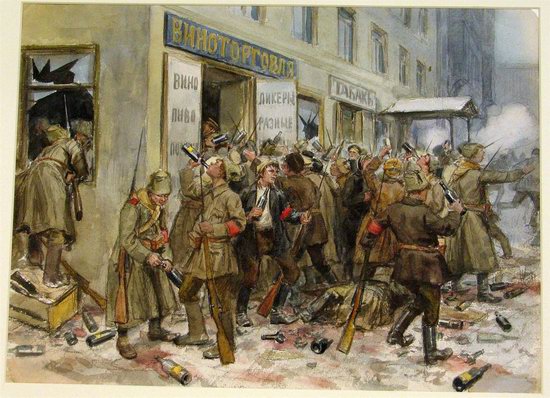
This script is known all too well. The general formula, as I said earlier, comes down to a bi-polar Marxian-Liberal view of history, in which the oppressed are dominated by the oppressors. Today’s protests carry the banner of anti-racism; tomorrow, they will carry the banner of anti-sexism, anti-misogyny, anti-homophobia, anti-xenophobia, and finally, the banner of anti-oppression of the transgendered by the “birth-naturalists,” and anti-monogamist.
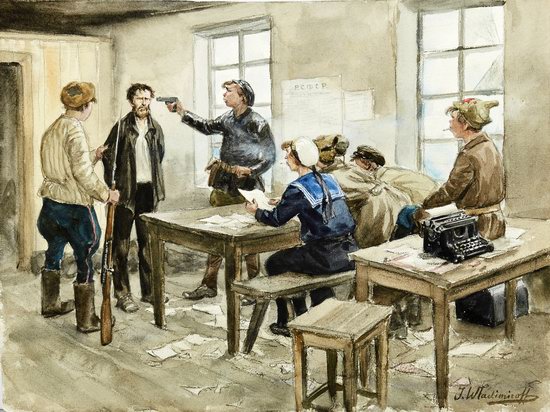
Each protest will repeat the destruction of the part of historical heritage, removal of monuments, burning books, renaming buildings, all of which represent the ills that must be eradicated before we can enter the new egalitarian Utopia. Hierarchy and privilege—the foundations of “polite society”—will be two words erased from the American Webster’s Dictionary. This is a pattern that we know from the history of the French and Russian Revolutions, which aimed at equality, though somehow ended up with a Great Terror and purges.
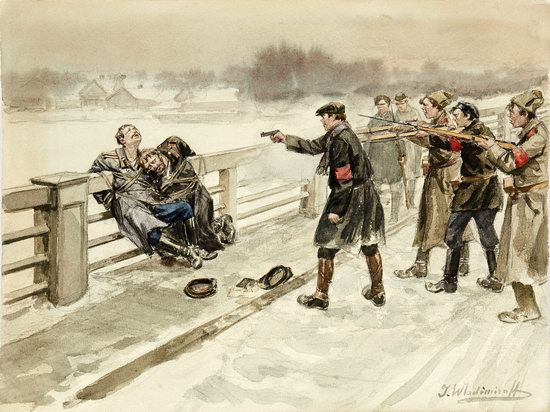
7.
America, the West, have reached a point where the only question left is: can anything be done? And if so, what can we do?
Ideas have consequences, and the current cultural climate is a direct result of what happened in the educational institutions since the beginning of the 1990s, or even earlier, as Allan Bloom suggested in his The Closing of the American Mind (1987). The philosophical doctrine of Relativism propagated by academics assumed the voice of a social message of multiculturalism—equality of all cultures. It purged from the curricula the greatest works of the human mind. Intellectual discipline, which the old classics would inculcate in the college graduates, was replaced by the idea that there is no Truth, only subjective feelings.
This idea went counter not only to Truth absolutists but also to the Classical Liberal notion that we find in John Stuart Mill: at no point in history, as Mill claims, is any single person in the possession of absolute Truth. We are progressive beings and as we travel through history, we discover more. Quest for Truth animates our lives. But relativism undermined both.
Individual sensitivity became a new cognitive criterion. Moreover, since every individual has his own threshold of sensitivity, different things appear true to different people, and different things offend different people. Today’s fight over the removal of names, monuments, and changing curricula is the direct result of relativism.
The Left today is offended by President Trump’s disregard for Truth and facts, but it was the Left of the 1990s which wholeheartedly promoted Relativism. It also invented the methodology of Culture Wars, which says that we can choose from among “competing interpretations.” Now the Left is crying “wolf” when Mr. Trump uses their own weapon to fight his adversaries. The Trumpian presidency is an unintended creation of the Liberal Left, which created the intellectual and moral conditions that made disregard for Truth and rational discourse possible.
The Classical Liberal idea of a rational society proposed by Mill, in which only people who are in possession of rational powers can be granted equal right to participate in a social conversation, has no place in the new America. The winner is not the one with the strongest argument, but someone who expresses the strongest emotion.
A prime example of how emotions can influence the political realm is the Swedish teenager’s walkout from school to protest climate change. Her protest was followed by the walkout of millions of children all over the world. Needless to say, the children do not know what to do about the changing climate, but climate change became the single most important socio-political issue, and as its importance grows, so the election of candidates who are concerned with the problem will be given high priority.
Election of a twenty-eight-year old Alexandra Ocasio-Cortez to the American House of Representatives is a telling fact. AOC is by far the most emotional and politically ignorant member of the House of Representatives, but her influence is growing. Like Greta, AOC is a climate activist, the author of the Green New Deal, and is a furious anti-capitalist.
New Green Deal anti-capitalism is the fastest growing ideology. Whether we like it or not, we need to take it seriously, just as we need to take seriously the fact that rational conversation with teenagers and political adolescents is not an option.
They do not understand that capitalism is the most efficient system of creating wealth, and that creating it has roots in the human desire to maximize profit, not to benefit anyone. “It is not because of the benevolence of the butcher, the baker or the brewer that you have your lunch, “Adam Smith writes in his The Wealth of Nations (1776), “but because of their self-interest.” The young people are not interested in maximizing profit, becoming entrepreneurs, or building anything. Their objective is the division of the wealth created by “selfish” individuals.
The mental universe of the New Green Deal anti-capitalists revolves around a few terms: sexism, racism, homophobia, xenophobia, and islamophobia. It is a world of intellectual and cultural poverty. Those words are like lenses which concentrate your vision on “evil.”
This new social theology says nothing about the world’s beauty, complexity, or the grandeur and tragedy of human existence, and since it is a world without God, there is no redeeming power. Collective, social activism is the only power which operates in it, and it claims it can save the world. Social activism has great appeal: it requires no knowledge, learning, or expertise. That is why it appeals to children, who, by definition, do not like school.
8.
Climate
The election of Donald Trump, Brexit, and conservative parties holding power in a few European countries (such as Poland and Hungary), may signify a temporary win for conservatives. However, we should not assume that this situation shall continue.
As things stand, it is unlikely that conservatives will retake education and that we will return to the old forms of learning. One can suggest serious reform proposals, as did American philosophy professor Nicholas Capaldi, but the chances of their acceptance are slim. This means that the new anti-sexist, anti-racist, anti-homophobic, and anti-Islamophobic indoctrination, supplemented by social justice courses, will reign supreme and will continue to shape the minds of the new generation.
There is only one way, in my opinion, which in which Conservatism has a chance to succeed long term. Climate change is an almost exclusive political property of the Left, and insofar as it is something that all children deeply care about, unless conservatives present their own Green alternative, they are likely to lose the new generation for good.
We need to realize that conserving the environment can be presented as the most conservative of conservative causes. What, if not the beauty of Nature, is the most thrilling of human experiences? The English “landed” aristocracy and Thomas Jefferson’s attachment to land are expressions of it. Jefferson, who knew as much about agriculture as he knew about politics, understood that there is a direct relationship between Nature and aristocratic-republican virtues.
Unless Conservatives come up with a political program that makes the preservation of Nature a top priority, we will be in danger of losing the political power and social force which can defend all other conservative values and causes.
It is high time to stop airing programs that undermine the Left’s research about climate change. We need to understand that the people who are against racism, sexism, homophobia etc. are the same people who last year protested against the failure to restore climate.
Following the Roman rule of politics divide et impera (divide and rule), one could, and indeed should weaken and divide the Left by proposing a serious Conservative Green Deal. In this way, one could attract many reasonable Left-leaning Liberal individuals to a more conservative side. Without the “Conservative Green Deal,” the ignorant and psychologically unstable are likely to become the most powerful party in the world.
9.
Language
The experience of Communism taught us about the power of manipulating language. The books by the French intellectual historian, Alain Besançon, are an excellent guide to understanding how it worked, and they were appreciated even among the former denizens of socialist countries.
American English, as I have written elsewhere, displays all the signs of the communist Newspeak. In some cases, it twisted reality even greater than was done under Communism. Therefore, we should avoid using it and, with a little courage, we can return to Oldspeak to clear up our social reality.
Terms such as “sexist,” “misogynist,” “homophobic,” “islamophobic” and “racist” are not helpful in dealing with social problems. In fact, they obfuscate real problems which might otherwise be resolved. What is more, using them means that we have bought into the categories created by the adversary.
Here is an instructive example. Communists liked using the term “socialist economy,” and at each time of deep economic collapse, they would propose to “improve the socialist economy.” It was a futile attempt because a socialist economy meant the absence of private property, which is the basis of economy. Therefore, no reform could improve the economic situation of “the working class,” and people’s miserable condition existed for as long as they were imprisoned by language.
In the country of my birth, Poland, the 1980s were the years when socialist economy reached its peak: for several years the entire population lived off of food-stamps; buying basic goods, such as toilet paper, was hardly possible, and most of one’s time was spent waiting in lines for hours to buy whatever one could.
When the “socialist economy” was replaced by real, capitalist economy, the shelves were filled with all kinds of goods one could only dream of under the socialist dictatorship. What happened was not any miracle, but a change of language. No one believed that a “socialist economy” made sense, or that it is an alternative to the Western form of creating wealth.
A similar explanation can be applied to American Newspeak. Almost everybody uses the superfluous “he or she.” There is no reason to do it, and the old generic “he” (which meant “he” and “she”) is good enough. Yet since the beginning of the 1990s, people say it out of fear of being branded “sexist,” to keep from being accused of “excluding” women.
There is nothing “exclusive” about using the generic pronoun “he” instead of the cumbersome “he or she.” Gender is a grammatical, not a social, category, and everyone who studied other languages is familiar with it.
Nouns in English have no gender, with the exception of a few which follow the Latin gender (Church, in British English; ship, occasionally pieces of machinery, and some animals). In other languages, the gender of pronouns follows the gender of the noun (masculine, feminine, or neuter). In genderless English, ignorance of grammar evolved into a political problem: “exclusion,” “oppression,” and so on. It would take but a minor act of courage to return to the Oldspeak to create a different socio-political reality.
Self-Expression. Its Avoidance In Education
This term is used increasingly in education and politics. It even became synonymous with the word “speech,” like in “freedom of expression” instead of “freedom of speech.” That they are not the same can be shown by invoking Justice Holmes’ example of someone shouting “fire” in a crowded movie theatre. I can be held liable for causing harm to others only if there was no fire and someone got hurt because I shouted “fire.” I am liable because my speech did not correspond to the facts (there was no fire, and what I said was the direct cause of someone’s harm), or because what I said was untrue.
However, if the term “speech” was to be substituted by “expression,” I could defend myself by saying, that my shouting “fire” did not need to correspond to anything. I was expressing the state of my soul and my expression was genuine! The notion of “genuine” abolishes the idea of Truth.
Why did “self-expression” become so popular? Partly because it is a counterpoise to discipline, one thing that democratic man lacks, as Ortega y Gasset noted. Mastering skills and crafts was always a long and laborious process, and it was done under someone’s direction. Only when the apprenticeship was over could one claim intellectual or artistic independence. It was not a guarantee of being a genius but a good craftsman.
Today’s students, including art students, instead of being encouraged to master something well (like grammar, style etc.) are told to be “creative.” The result is that most of them write insignificant stories about themselves, how they feel about the text, instead of precisely answering a question assigned by the teacher. Their work is genuine but often without merit.
This was something that the great German poet, Goethe, in his conversations to his friend Eckermann, warned against. The world around us is richer than what we find inside ourselves, and to be a great writer or poet, we must study Nature, learn from others who discovered many things before us. By imitating the best of our past predecessors, we learn techniques and gain insights that we could never discover or create on our own.
Self-expression may give us a momentary sense of lightness, liberation from the shackles of the past, the discipline that the Past demands of us, and sometimes even a momentary success, but in the long run it will throw us back on ourselves and leave our souls empty.
In education, we need to go back to serious and difficult classical texts and teach the youngsters to read what great writers and philosophers said, rather than allow the student to “disagree” with great minds. Self-expression is not an educational method. It is a dangerous anti-educational tool. However, as Nietzsche observed, it fits the frame of mind of the democratic man, who claims to be equal to everyone.
Gender And The Professions
It is a commonly accepted claim that the low enrollment of women in, say, physics or civil engineering departments is a result “sexism.” And since no one wants to be branded “sexist,” we accept the idea, just as how under communism people talked about the “socialist economy.” Is it because of “sexism”? An alternative explanation could be that it is a result of innate differences between the sexes.
One could ask, for example: is the low percentage of men in the teaching profession at elementary schools (it changes as we go higher) a result of “sexism”? Women, generally speaking, are simply better at dealing with little children; no man would consider this assertion sexist. Would it benefit children if the profession was 50% women and 50% men? One can easily doubt it, but, once again, instead of opposing such policies, we accept the language of equality and discrimination, and frequently create policies which are hurtful.
Striving for equality is tantamount to creating a problem, and the problem in this case was created by extending the idea of equality beyond the legal realm (i.e. equality before the law). The demand that we have equal representation of the sexes, races, ethnicities, sexual minorities, and so on in any profession and politics, on any level, is utopian, unrealistic, and, above all, it runs counter to the idea of excellence.
There will never be a situation in which all minorities will have a sufficient number of qualified members to fill every profession at any given time. The only criterion that is truly just is to admit and hire people on the basis of what they know, and how good they are at what they do.
A critic might say: it is naive to think that the idea of excellence will always win, and that we will never be discriminated against. However true, this argument is rather weak. The push for more equality is tantamount to creating a situation in which nearly all standards of excellence have been abrogated, and an individual failure is never perceived as failure, but as the result of discrimination based on sex or race or religion.
The social, educational, and political costs of such policies are already proving to be too high. Secondly, we will never be able to make sure that someone’s decision is not influenced by his prejudices; and the only way to make sure that he is bias-free is by a system of repeated trainings (as commonly done in American already).
If a condition of employment consists in going through a series of training, we should make it clear that we do not live in a free country, but a totalitarian boot-camp. Furthermore, the State is not a moral institution. It has no right to intervene into anyone’s ways of thinking and perceiving the world. It can, however, intervene when traditional social norms are violated.
We need to decide whether we want to live in a totalitarian democracy, where all people are equal and, consequently, the same, or, in a society with many problems and imperfections in which we are free to act as different and free individuals.
Blind tests, examinations, and job applications would do the trick, but they would soon be attacked, as they are, for being culturally biased. This, of course, is nonsense, but very few people have the courage to oppose such sentiments.
Conservative Notion Of Law In A Liberal State
We are told that Justice Gorsuch’s recent ruling was a slap on the face of Conservatives. The prohibition against employment discrimination on the basis of sex extends, according to him, to “sexual orientation” and “gender identity.” In other words, today’s notion of “gender” is what Title VII of the 1964 Civil Rights Act considered “sex;” that is to say, biological differences between man and woman.
According to Nature there are only two sexes, but according to “Tumblr,” there are 112 of them (in 2020). One can ask, what happened between 1964 and now? Nature did not change. Culture did. Culture became subjectivist, and the old notion that there is a stable, unchangeable reality out there, has been abandoned.
In this new reality, a man who imagines himself to be a woman is therefore a woman; a White woman (e.g., the Black activist Rachel Dolezal) who imagines herself to be a Black woman is therefore a Black woman, and someone who claims to be an animal—trans-species-ism—is consequently an animal. One could simply end the conversation by saying that my being a woman is no more valid than my saying that I am 19 years old. There are things which we cannot change.
The Liberalism of today is committed to the unconditional defense of subjectivism and minorities, and even if some of the minorities are imaginary and self-created, Liberalism does not have the needed theoretical tools to reject individual self-identification. My being me is what I imagine myself to be, and because the Liberal State was created in response to the oppressiveness of History and Tradition, it is bound to defend social attitudes which are destructive to, and incompatible with, the preservation of national Culture and civilization. As a matter of fact, Liberalism is committed to the destruction of national heritage and civilization.
One does not have to believe that the idea of “human rights” is totally useless, but when confronted by recent rulings of the American Supreme Court Justices, one wants to join the English Jeremy Bentham in saying: It is nonsense upon stilts. Why did a conservative Justice Gorsuch rule the way he did? Either because he lacked courage to go against his liberal colleagues or because he does not believe in rights grounded in Natural Law.
Reforming The Police
Any foreign visitor to America, including her Mexican and Canadian neighbors, is surprised by the ubiquitous presence of police on American streets. Why is that? The immediate answer is: American attachment to guns, unheard of in most countries. American police deal with dangerous criminals who have weapons, and so must possess higher mental alertness than the police of other countries.
The other observation is that Americans are more aggressive and violent than other peoples. (Hollywood movies, TV programs about crime and criminals, shootings, etc.) The moment one crosses the American border, one gets the impression of entering a highly militarized zone. This feeling is additionally strengthened by the attitude of immigration officers, who do not make any effort to welcome you, as is almost universally the case in other countries.
The presence of guns, however, can only partly explain violence in America. Australia, for example, shares the same British roots: it was a colony, attachment to guns exists there too. Yet the level of violence there is much lower, and serious gun reforms had been undertaken without massive opposition.
But America has something that Australia does not. Australia was colonized by British criminals; America was colonized by Protestant Puritans. They were people who displayed an uncompromising theological spirit and who wanted to eradicate all evil. A cultural historian could say that such an attitude might foster a psychological state that causes violent responses.
Today, not much of this bellicose religious spirit is left. However, it is possible that the high-level of religious temperatures survived in a secular form, as national characteristic. The alcohol prohibition of the 1930s, and the anti-smoking campaign of twenty-years ago bear resemblance to the religious crusade against sinfulness. Now vegetarianism is becoming a new theological movement. (Meatless Mondays were introduced in California, in restaurants, and in all schools in New York City.). Now the fight against sexism, racism, homophobia, and xenophobia causes equally violent responses. The Protestant Spirit seems to be today’s “social justice warriorism.” Criticism of it meets with condemnation, ostracism, and public annihilation; and this has been described already by Tocqueville.
When Sinclair Lewis, an American author, was awarded the Nobel Prize in 1930, he was not only denounced, but met with threats by those whom he described. As he said in his Nobel Lecture, “Now and then I have, for my books or myself, been somewhat warmly denounced—there was one good pastor in California who upon reading my Elmer Gantry desired to lead a mob and lynch me, while another holy man in the state of Maine wondered if there was no respectable and righteous way of putting me in jail.”
The causes that the population of a country fights for may change over time, but the historically shaped character of people seems to persist. One cannot change the character of a people overnight. Violence will likely continue, and will have to be dealt with by finding imperfect solutions to preserve the social order. However, to be successful, we should attempt to minimize wrongs and vices, not eliminate them completely.
Any attempt to make the world sinless, or to turn a blind eye to the violence and hatred of social justice warriors, is to encourage intolerant behavior and allow disorder to grow in the name of alleged future social benefits.
The Left’s proposal to defund the police in order to dismantle them is naïve and dangerous. Any reform must begin by taking into account the use of force, something that the Liberal Left does not wish to consider.
Here, another opportunity for conservatives presents itself. Reasonable, but very firm restrictions on the police’s use of lethal force, which would include a guarantee of the officer’s safety, is in place. However, we must keep in mind that making police gentler will not change the behavior of criminals. If the desired reforms will not increase public safety, even the liberal public may come to the conclusion that avoiding walking on the streets for fear of harm or death is not the realization of their program of social justice.
Civility, Toleration and Politeness. Common values.
The 1990s witnessed the publication of several books about toleration. In a climate of diverse views, created by relativism, toleration is a virtue. The meaning of the term that emerges from John Locke and Voltaire’s Treatise on Toleration means, “putting up” with views and behaviors that we loathe, disapprove of, dislike, and do not want our children to imitate.
The idea of toleration was invented to put an end to religious persecutions, and the killing of people who claimed to profess a different theology. Today, being tolerant means something else: accepting someone’s opinions and behavior as equal to our own. Any forms of disapproval, including mental acts, are considered to be acts of bigotry, and since all Cultures are cultures, all cultures are equal, and so are all forms of behavior.
In reality, only a few of us believe this, and most would prefer to live in a society in which all behave like us and have opinions similar to ours. This is not a utopian dream, but the psychological inclination of everyone who believes that it is better to share a common system of values and behavioral patterns than not. Violation of norms would traditionally meet with social and personal disapproval, which would also help the norm-breakers to act in a “civilized” way.
Such social norms no longer exist. They have been in decline since at least the late 1960s. Those who dare to uphold them are labeled “fascist.” Absence of common norms does not make life easier, but more difficult, and when conflict arises, we cannot appeal to the notion of “unacceptable behavior.” We must have recourse to law to arbitrate between parties.
Toleration, today, means that it is our duty to accept quietly any behavior from any individual, and if we do not, let alone if we openly oppose it, then we will be prosecuted by law on account of discrimination. Such a situation creates a social atmosphere in which a minority has the upper hand, and keeps the majority silent through fear that they may be labeled as “intolerant.”
This is true not only of all past cases of so-called “discrimination,” but of all future cases as well. Tocqueville and Mill feared that democracy will create a tyranny of the majority. What it turned into was rather a tyranny of the minority.
The tyranny of the minority exists not because the majority cannot stop or oppose it, but because the majority accepts the premise that all views are equal, and none can be suppressed. In the absence of recognized, rational, cognitive criteria, no argument can be persuasive. Our thought has no absolute or universal grounding; it is nothing other than “self-expression,” which is neither true nor false because it is always genuine.
This is one of Liberalism’s greatest weaknesses. Mill, as much as he was in favor of the Party of Progress, understood that what passes for the opinion of the majority is the opinion of the most vocal individuals in a society. Yet, despite the danger that he described in Chapter 3 of On Liberty, he never resolved the theoretical problem of the threatening power of the minority’s demagoguery. He believed that traditional rules of civility and politeness would guide us. Today, we know that this is not true, and that such rules must be inculcated; they stem from Tradition and a respect for authority, something that his Party of Progress waged the war against.
Thus, for example, we find ourselves in a situation where a single member of a minority can make demands that are destructive to the very tissue of culture and civilization. This mental attitude is most prevalent in academia, where a number of administrative emails to the faculty is about “name preference” (a male student can request that he be called by his chosen female name). Or, as it happened in Sweden, a group of Muslims who fled Syria demanded that a mosque be built for them in a small town. The quiet outrage of the local population was met with criticism, accusing the “Christian folks” of being intolerant.
Unlike Liberalism, Conservatism’s solution to resolve such conflicts is thorough appeal to the tradition and history of a nation. Thus, a Conservative could refuse, for example, to build a monument of the Prophet Mohammed next to Jefferson, Washington or Lincoln memorials on account of the tradition, religion, and history of the United States.
No matter how large the Muslim population of the US is today, Islam had no historical role in shaping the soul of the American people. The same goes for educational curricula and Protestant religion; they should not reflect the diversity of the population, but the ideas which created the United States of America. Similarly, no Catholic or Jew should feel “offended” by the Protestant religion and history, nor by History of Britain being prioritized in American history books.
Since Liberals are committed to a vision of the world in which a people and a nation do not exist, they are indifferent to a nation’s cultural heritage. Pulling down historical monuments is not an act of Al-Qaeda-like barbarism, but an act of liberation.
Church, Religion, Faith.
One could say that only people of faith or churchgoers should pronounce themselves on matters of religion and how the Church should act. This is certainly true, but one could also claim that insofar as religion and the Church is an important cultural and moral institution, what She does should not be a matter of indifference to those who may not be as engaged in Her life as others may be, or even atheists.
One could draw a parallel with status of monarchy. There are many of them in Europe: Spain, Belgium, Holland, Denmark, Sweden, Norway, and, of course, Britain. British monarchy is the most visible and, relative to other countries, occupies a special place among them.
The British monarch’s power is mostly symbolic, but symbols matter. They point to the Past. They speak the language with which History talks to us about ourselves. Monarchy is the last visible symbol of the old hierarchical order. “You, too, can become president” is a very well-known American phrase. “You can’t become a queen or a king” would be its British counterpart. (As a matter of fact, this is what the arch-Liberal J.S. Mill said).
It is a language of gentle submission that teaches us that our political ambitions must have limits. Such limits also exist for the monarch, and they do not come from legal limitations. The royals, nobility, are limited by aristocratic code. One can be almost sure that monarchy in Britain, and elsewhere, will last so long as the Royals behave like royals, not like celebrities. Once they do, monarchy will be gone.
The Church and its officials are not in the same situation. They, unlike the Royals, represent an eternal, not a worldly order, and, one could say, will never become spiritual celebrities. Someone might say that this is not necessarily true. It is enough to have a closer look at the state of Protestant churches in America, many of which turned into mega-churches, while their pastors behave like actors, peddling the “gospel of wealth,” rather than the attitude of humility, love, and forgiveness.
Protestantism was always more egalitarian and democratic (sola scriptura, as Luther said) than the Catholic Church, and Protestant Christianity’s slow demise, which we observe in America, is unlikely to be the lot of the Church of Rome. It is a hierarchical institution, with the Pope, cardinals, archbishops, bishops, and priests, and therefore much resistant to changes. Any attempt to introduce democracy into it must fail.
This is true, but what matters the most is the message. It’s been decades since I heard a sermon when the word “sin,” “corruption of human nature” were used. Confession is frequently called dialogue/confession. But dialogue presupposes that the two interlocutors are equal. This is not the case of confession, where the sinner is not equal to the priest.
Some twenty or thirty years ago, the most popular language of the sermon was that of psychology (self-understanding, self-esteem); today, the language is that of social justice. In both cases, then and now, the language of theology (and this concerns also Judaism in America; particularly the reformed synagogues, which are becoming increasingly progressive) is the same that is heard on the street, on television, or in a coffee shop.
One could say, cultural trends are almost impossible to stop, and, unless religion adopts the language that the people respond to, it is likely to lose. This is not true. The changes in the Catholic Church after the Second Vatican Council are proof. One of the “tricks” was to introduce popular music (guitars) into the Church. Reason? To attract more young people. But it did not work well, and much of the Catholic music was, luckily, preserved in High Anglican rituals, and those who wanted to listen to guitar music found better places.
The same goes for the religious message: “social justice” is likely to be better propagated by social justice warriors than by priests and pastors. There is also a danger: the Christian or Biblical message is not the same as that of the secular world, and by trying to squeeze the two together, we may confuse what is good for one’s soul with a secular ideology of intolerance and violence.
Many of today’s protesters who commit acts of violence call themselves social justice warriors. If they are the same people who attend Sunday mass and do not see a contradiction between religious values and what they are doing, the Church has then lost its battle for the souls. The more appropriate message is the old theological language of sin and corruption. It tells us that evil is in us, not in the institutions representing “power structure.”
Jesus’s teaching may have been the most culturally transformative experience of the Western world, and without Him, our world would be what all ancient civilizations were – cruel. Jesus was not a forerunner of today’s social justice movement. “My kingdom is not of this world” were His words. They point to us, our souls which must become pure. Nothing in His message is about changing “power structure.” “Render unto Caesar what is Caesar’s” – another of His important sayings – means that we owe obedience to the State; or, that the world cannot be fundamentally reformed.
If the Church is to play any social role it must remain the guardian of 2000 years of Western Tradition and historical memory. Any changes in it – music, rituals, rapid changes in theology — can only break Her historical ties to the Past. This is particularly important now as the secular Past is being destroyed.
10.
The protests, the protesters’ demands, the government’s reluctance to use force to restore order: all of these problems lead us to ask, What’s next? Americans are scared and many are even thinking of leaving the country, suspecting that the situation can only deteriorate. And they are likely to be right.
Walmart has already announced: “Inside the company, our work to recruit, develop and support African Americans and other people of color will be even more of a priority.” Other companies will, undoubtedly, follow suit. This is nothing but a policy of appeasement, which, however well-intended, is not very likely to eliminate the inflammatory social situation. The opposite policy could be most desirable.
Instead of enticing African-Americans and other minorities to violence and destruction of their country, one should encourage them to be more American, show them that the Anglo-Protestant Western heritage belongs to them as much as it belongs to the Whites. There is nothing in the biological and genetic make-up of the Whites that make them “Westerners.” Culture—a people’s way of acting and thinking—is inculcated through education and patterns of the acquired behavior, not genetics.
It is truly instructive in this case to recall a classic movie, To Sir with Love, with the Black American actor, Sidney Poitier. It is a story of a Black man from the former British colony, British Guiana, who came to London to look for work. Unable to find a job as an engineer, he becomes a teacher in the working-class of East London. What are the English teenagers like? To put it simply, they are unruly, destructive barbarians, whom the Black man, the man whose people the British colonized, teaches the principles of civilization, civilized behavior and appreciation of civilized behavior.
What can bring Americans together is the collective effort to rid America of the destructive myth of multiculturalism. On a cultural level it means little, and in practice it promotes the mediocre works of other cultures, instead of those great works that elevate the spirit of those who need to be elevated. We should promote humanity’s greatest achievements which everyone, regardless of color, can recognize. The beauty of Leonardo’s “Lady with the Ermine,” Botticelli’s “Primavera,” or Van Gogh’s “Starry Night” are beautiful to everyone, regardless of color.

Multiculturalism, despite its pronouncements to the contrary, is a form of racist ideology. It insists that we look at ourselves as members of a single race or sex, leaving little room to perceive ourselves as people who may actually have something in common. In doing so, it fosters suspicions and hatred, the very things it claims to fight.
The question of the end of America is by no means rhetorical, and even very wise men, like Victor Hansen of the Hoover Institution, openly draw parallels between what we see on American streets and the French Revolution. As we know, the enthusiastic beginning brought the Reign of Terror and ended with Napoleon’s rule. Napoleon’s seizure of power fits Plato’s description of the tyrant who emerges to restore order after a democracy, by extension of equality, slides into anarchy.
Plato did not think this cycle applicable merely to the experience of Athens, but that it inheres in the logic of democracy. The expansion of equality is bound to dissolve all authority and social structures. The protesters’ demands to dismantle the “power structure” (defunding police, abolishing history by tearing down monuments, abolishing all intellectual and moral criteria that differentiate us, and, above all, making politicians responsive to protesters’ whims) fit Plato’s description perfectly.
If Plato was right, and everything indicates that he was, we are witnessing the end of democracy and of America, the American system of government. American historians of the past century would talk about the United States in self-congratulatory language, as if the American founding principles were solid, immune to criticism, and no structural problems could be found in this new political edifice.
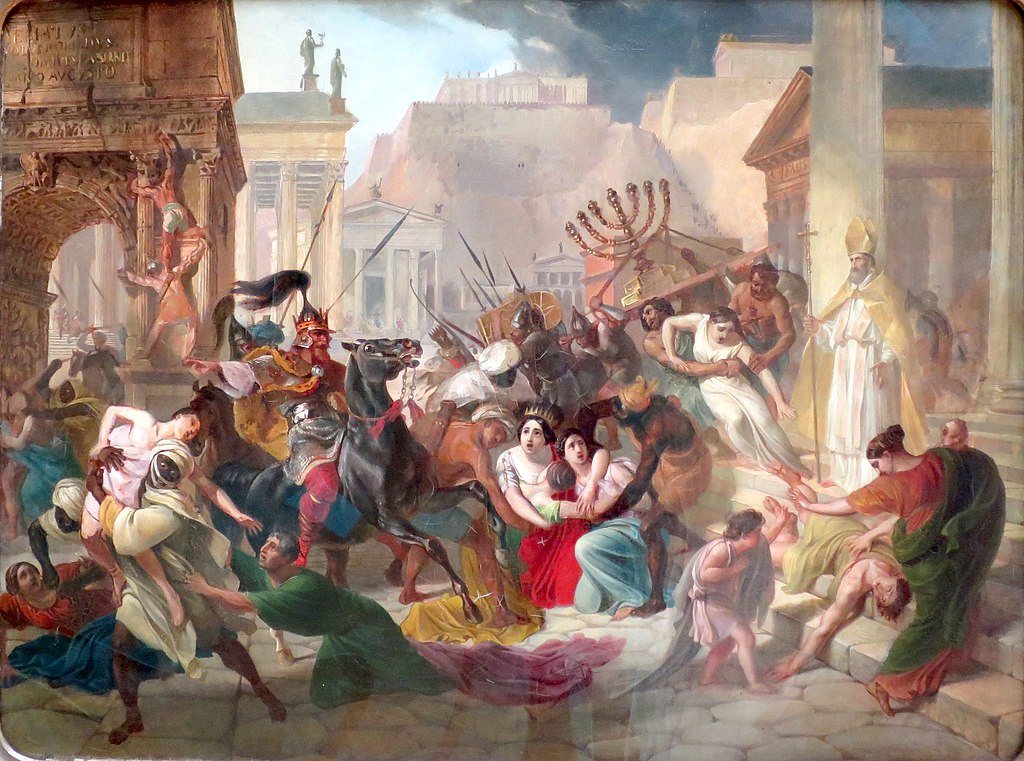
A closer look seems to point to a fundamental crack in the foundation – equality. “We hold these truths to be self-evident that all men are created equal…” But equality is what Plato identified as the problem of government. Equality causes the collapse of political structures, including democracy itself. It is an acid which dissolves authority, without which political order is impossible. Thus, the long-celebrated and idealized founding principle of the American Republic was flawed from the very beginning. Equality is a form of political steroid which worked for a while (about 200 some years), but now the runner is about to collapse without ever fulfilling his promise to leave no one behind.
Matthew Arnold predicted it in his essay, “Democracy,” arguing that the Anglican-hierarchical order is the glue which keeps England’s political system stable. But, as he warned, if the English adopt an American system of government by expanding equality, “the fate of America will be ours.” The protests in Britain, the behavior of a part of the British population, who demand that the statues of Winston Churchill be torn down, the adoption of American slogans, etc., only confirm that Britain is becoming another America, and the growing social disorder in America will show up there, too.
Arnold was by no means the only one who understood the problem. In his Revolution and Rebellion, The Language of Liberty, and Thomas Paine, the eminent English historian, Jonathan C. D. Clark, argues, with a meticulous language of heavy-weight historical scholarship, that the American Revolution was an attack on the hierarchical Anglican order. It was the last war of religion.
Today we see the secular consequences of the old war. In 1776, Americans fought the old hierarchical oppressive order. Today, they are fighting the oppression that was established in 1776. However, unlike in 1776, there are no new founding fathers who can offer an alternative to the old-new oppression, and the reason is simple: founding principles of political life presuppose a degree of hierarchy to ensure social cohesion, which a people must be willing to accept. It appears that the American understanding of freedom is what Plato termed “license.” It was what buried Athenian democracy.
Can anything be done? Yes, the return to the three concepts of Conservative thought that I mentioned at the beginning: reverence for the Past as the guide to the Future, privilege based on merit, and social hierarchy. If equality is the sole principle that animates social and political life, we are in danger of even further destroying the Past.
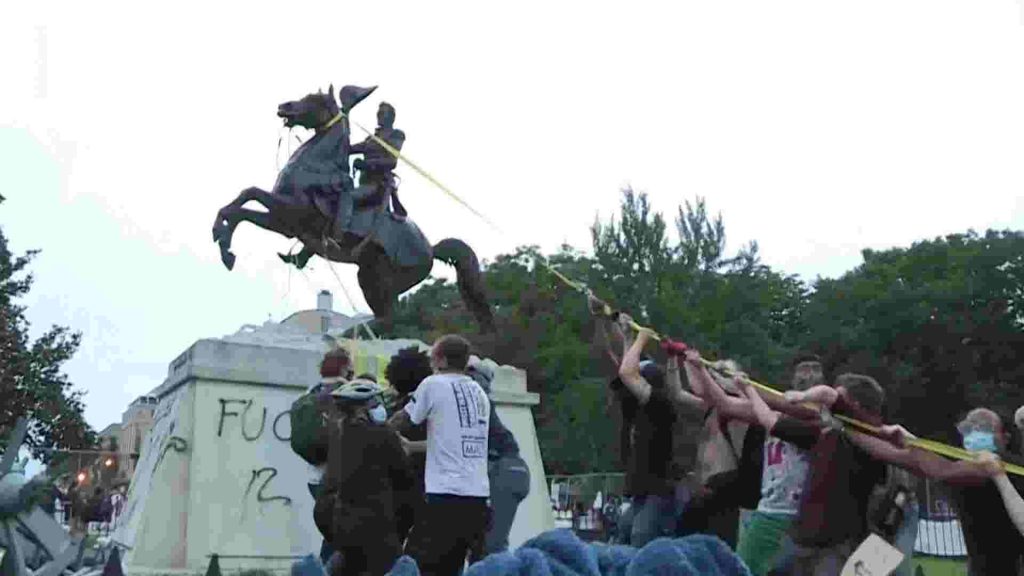
Zbigniew Janowski is the author of Cartesian Theodicy: Descartes’ Quest for Certitude, Index Augustino-Cartésien, Agamemnon’s Tomb: Polish Oresteia (with Catherine O’Neil), How To Read Descartes’ Meditations. He also is the editor of Leszek Kolakowski’s My Correct Views on Everything, The Two Eyes of Spinoza and Other Essays on Philosophers, John Stuart Mill: On Democracy, Freedom and Government & Other Selected Writings. His new book, Homo Americanus: Rise of Democratic Totalitarianism in America, will be published in 2021.
The image shows, “La destruction de la statue royale à Nouvelle Yorck (The Destruction of the Royal Statue [of George III] at New York),” a colored print by Franz Xavier Habermann, dated 1776.
